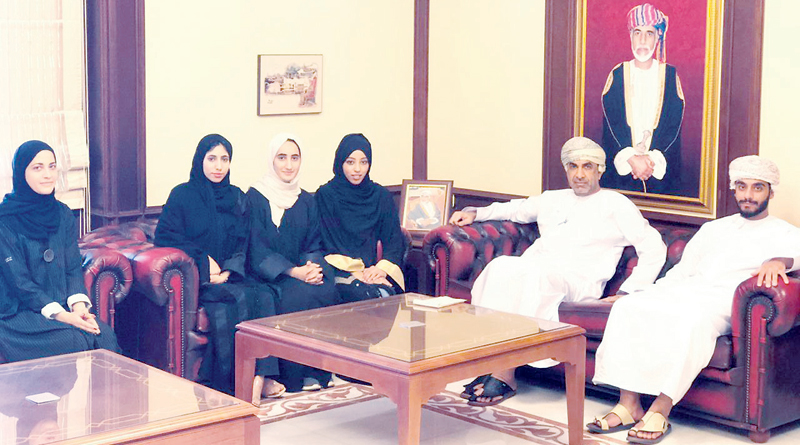

Bayan al Henaei -
The energy around student entrepreneurship today is incredible. The world is continually blown away by what the next generation of innovators are dreaming up. even if some student startups fail, the critical first-time founder experience is an invaluable education in how to build great companies. However, Val (shortcut of Value), a student-run startup was meant to succeed.

A group of 15 students from Sultan Qaboos University in an attempt to tackle issues concerning Aquaculture founded a small company called Val. Marwa al Batashi, the Production and Development Officer of Val, said that their main goal is to solve the issue of fish feed as there is no factory producing it in Oman. In its attempt to diversify sources of income, the Sultanate of Oman opted for developing Aquaculture and began commercial fish production in 2003. The numbers of fish farms in Oman gradually increased throughout the years, however the fish production is still humble and there are more difficulties to solve.
The Sultanate imports fish feed which is very costly. Therefore, members of Val, after conducting research and consulting the departments of Animal and Veterinary Sciences and Marine Science and Fisheries of SQU, began the production of fish feed. Their product is particularly unique as the group thought of the poultry remains as the main food ingredient for the fish. Al Batashi said that the number of slaughterhouses in Oman is large and the remains of poultry are disposed despite containing great nutritious value. Val now collects these poultry remains in order to reuse them in the production of fish feed. So far, these remains had been experimented on Argyrops Spinifer and was a success as no deaths or diseases occurred and their weight increased. Val is currently experimenting on other sea fish such as Tilapia, Hamour and shrimps as the Sultanate’s Aquaculture focuses on sea fish.

Al Batashi highlighted the distinguished qualities of their product in comparison to the imported fish feed. The price is competitive. The price of exported fish food constitutes 60 per cent of the costs of fish farming. Since the price of Val’s products is lower, the cost of the fish farming will accordingly be less. In addition, the main ingredient is sustainable and abundant, while their production process is eco-friendly. Finally, Val’s product solves the issue of using Sardines as a main ingredient in fish feed as big numbers of them are killed for this purpose. Val therefore provides a sustainable alternative of animal protein.
Val is also participating in Injaz Oman 2020 and is currently competing in the semifinals. Their experience in Injaz Oman had helped them grow as a company in terms of production, development, finance, marketing, human resources and public relations. It gave them the opportunity to meet investors and experts in their field and helped introduce their product to the public. The team had also received technical support and consultation from the Ministry of Agriculture and Fisheries. Al Batashi stated that their work in Injaz Oman serves as a starting point to achieving their long-term goals in constructing a local factory and participating in Injaz Al-Arab.
Val’s journey is faced with many challenges. The production process had been slow so far since the machines they are using are small and the SQU labs they work in are usually occupied during lectures. Nevertheless, the team is hopeful as they will soon receive their sale permit and officially start their business.
Oman Observer is now on the WhatsApp channel. Click here



